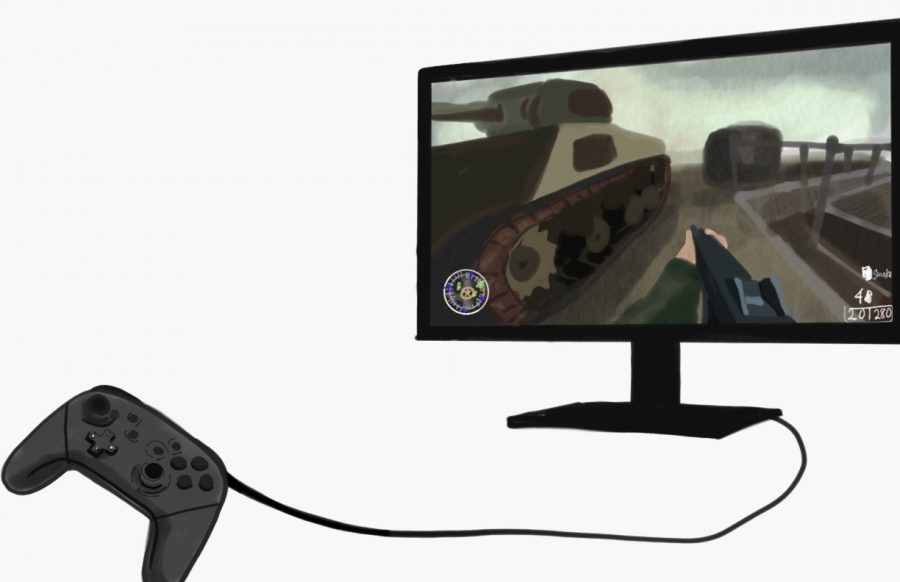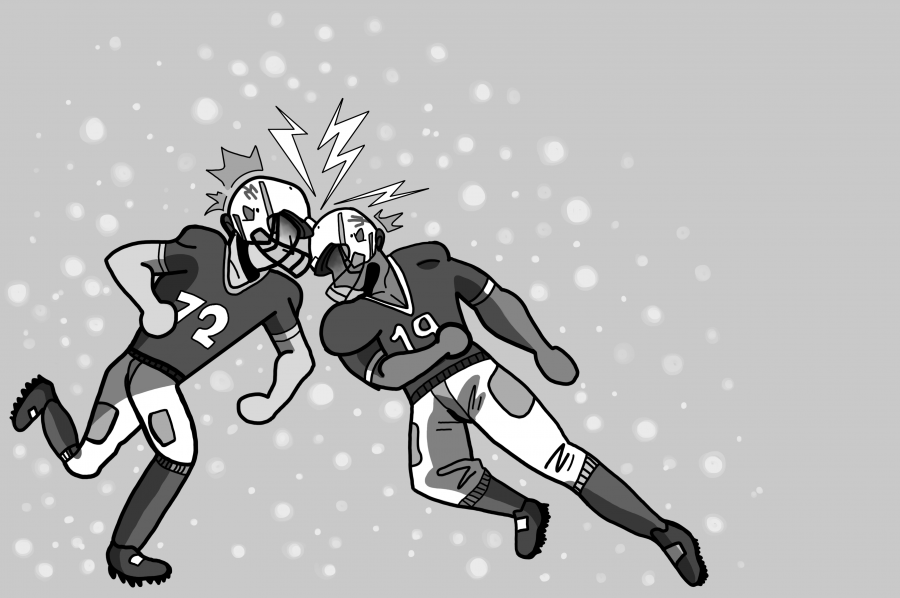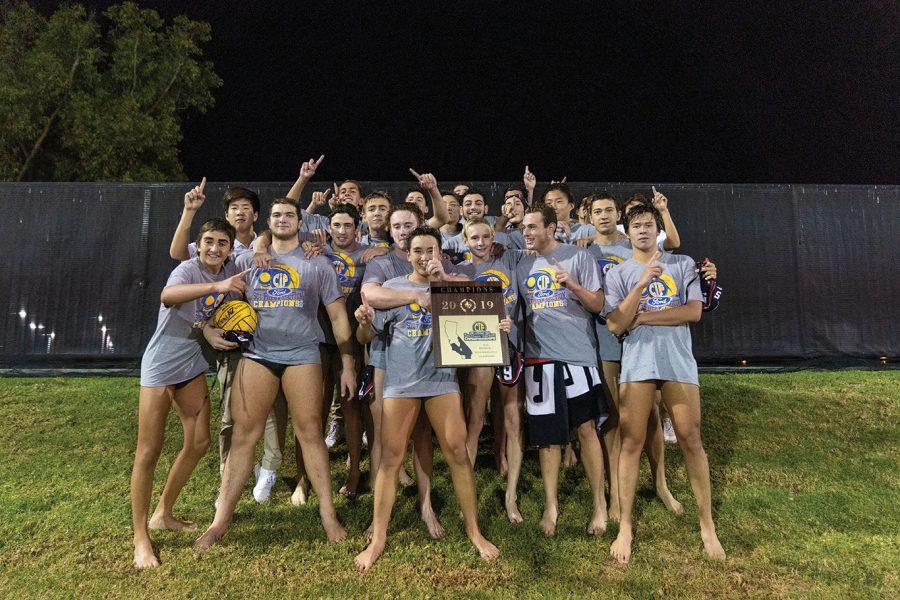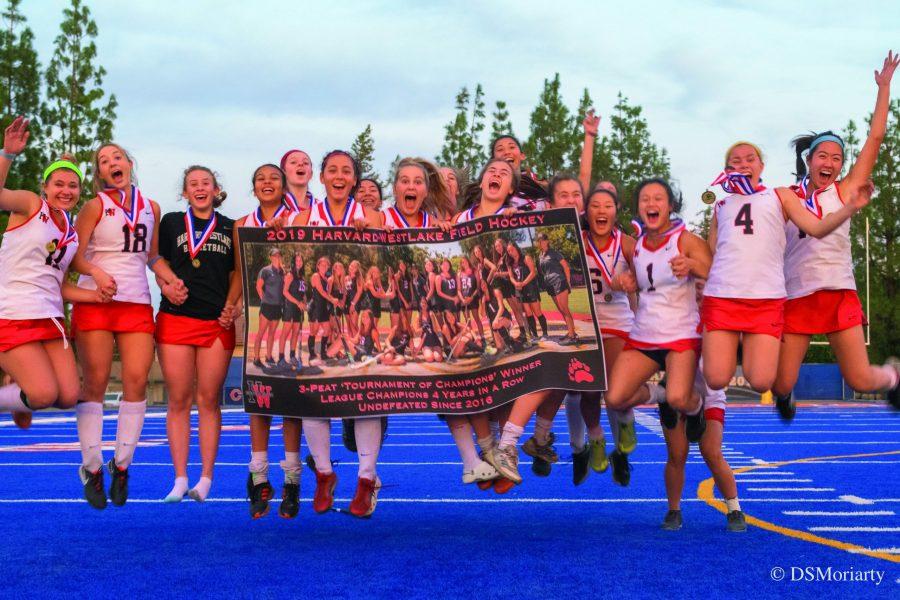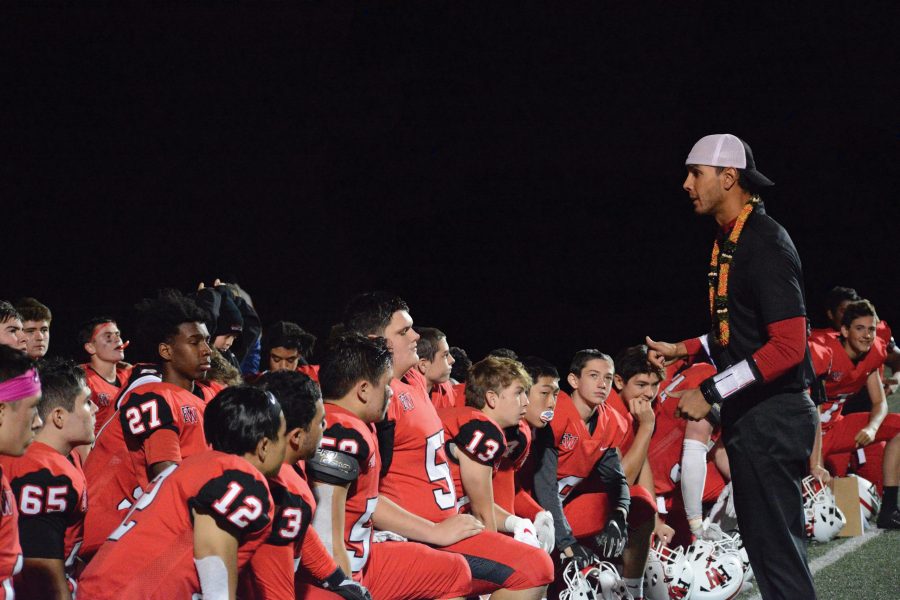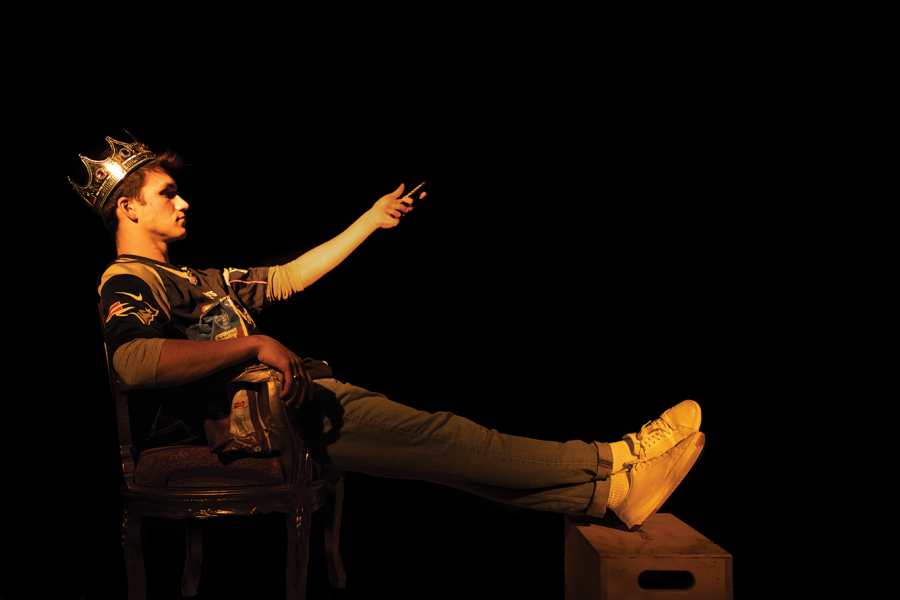The Sierra Canyon Upper School added an esports team to its athletic department at the start of the 2018-2019 school year. Now, other high schools in the Los Angeles area are looking to do the same. Should HW add an esports team and enter this new frontier?
It was a Saturday morning and Jake Dalton (Sierra Canyon ’19) woke up mentally prepared for his practice. All he needed to do was walk across his room, sit down in his DXRacer gaming chair and turn on his monitor. Then the “Fortnite” loading screen flashed across the screen and Dalton was ready to game.
“Esports is as much of a sport as race car driving or poker is,” Dalton said. “It’s not very physically demanding but it is very strategic and prolonged focus can be mentally straining.”
Dalton is a member of the recently added esports team at Sierra Canyon High School which competes in the High School Esports League.
The Sierra Canyon team is able to compete in games rated teen or below. Dalton said that he spends the most time playing “Fornite,” but also plays “League of Legends,” “Rocket League” and “Counter-Strike: Global Offensive (CS:GO)” less competitively.

“Being on the esports team is pretty cool since it is the inaugural team and the program is only going to expand and become more organized in the following years,” Dalton said.
Several students including Dalton organized a “Fortnite” tournament against Twitch streamers in the well-known gaming clan “Faze” in support of the addition of esports in schools Nov. 24.
“The addition was organic just like every sport,” Sierra Canyon Athletic Director Rock Pillsbury said. “I’ve been [at Sierra Canyon] for 11 years and as we’ve added teams or added lacrosse for example or we added a golf team, it was organic. We had several kids that wanted to get an esports team going so we supported it.”
Pillsbury said that he believes esports is considered a normal sport at Sierra Canyon.
“The [National Federation of State High School Associations] is like our governing body in the CIF and they sanctioned sports,” Pillsbury said. “Once they sanctioned it, it was easy for me to follow up on it. If is a part of the NFHS, it is a sport, so it was kind of easy for me to get it going.”
The squad at Sierra Canyon practices after school and is overseen by STEM field coaches, Julie Ahring and Bruce Buenaventura, along with IT Department staff members Ryan Chapman and Julian Evjen.
“I wouldn’t say the team is coached,” Pillsbury said. “In all my other sports, I feel that my coaches know more than my players. I suspect that with esports, some of the players know more than the coach and it’s more of like a chaperone to make sure everything goes well.”
Many of the players practice in their free time outside of school as well.
“It’s a craft, it’s like your golf game, you don’t really need to be at school to practice but the only difference is that at school we use PCs and some students at home use [Microsoft’s] Xbox or [Sony’s] PS4, which has a different system than the PCs so by playing at school I think it’s more efficient,” Pillsbury said.
In addition to expanding esports programs in schools, the competitive professional gaming industry continues to become increasingly popular under the umbrella of gaming clans such as “Faze,” “TSM,” “Liquid” and “Optic.” Last year, Twitch tallied an average of 1,069,194 viewers compared to 746,000 average viewers in 2017 according to TwitchTracker. Epic Games, the developing company of “Fortnite,” said that over $100 million in prizes will be given out at events for the 2018-19 season, which is the largest amount in esports history.
“It might be hard to be recruited to college for esports but I do realize how popular and how much money the professional gamers make,” frequent “FIFA 19” gamer Neema Mansouri ’20 said. “However, it’s probably pretty hard to become a professional and not all games are as popular as ‘Fortnite’ or have as big of a competitive scene.”
The increasing popularity and growth of esports around the Los Angeles area, at both local high schools colleges such as the University of Southern California and the University of California Los Angeles, has raised discussion at Harvard-Westlake in whether or not sports should be added to the athletics department Head of Athletics Terry Barnum said.
“I know that [Middle School math teacher Michael] Grier has had some kids that he has been working with gaming, but right now it’s nothing more than a club,” Barnum said. “I think it will probably stay that way. Even if it were to become something bigger than that, I’m not 100 percent convinced that it would be in the athletic department. It might just be a club, it might be something outside of athletics like Robotics is, they compete and they’re not a part of the athletic department. Mock trial, Model U.N., debate are examples of what esports could potentially be.”
Esports have become more prominent in high schools either as a sports team or club, Barnum said.
“I know that we have had kids joining, but I don’t think we’ve done it as a school on a real serious basis,” Barnum said. “In the future it very well may be though, I was at the State Federated Council Meeting last week and it was a huge part of the conversation, so it’s a big thing and it’s becoming a bigger thing in sports.”
In 2016, the Call of Duty World League (CWL) was created, open to both console gamers and PC gamers. The CWL Pro League, returning this month for its fifth season has increased its prize pool to $6 million, which is the largest prize yet in CWL history.
Similar to clubs, the esports team could meet in any classroom after school to practice or even hold matches and tournaments, Mansouri said. Unlike any other athletics program, the esports team would not necessarily need to travel to compete in matches or tournaments as games can be played remotely.
“All the games could be played online through the game’s servers,” “League of Legends” player Cristian Pang ’20 said. “For the most part, the teams competing in the event would just have to contact each other and then invite each to the game lobby and then use party chat on the Xbox or discord on computers.”
Although a few students said they would like to see an esports team be added, others said that they feel different due to other extracurriculars.
“I do not think an esports team would be practical to add to Harvard-Westlake because lots of students already have other time commitments, however, I am all for it if that’s a possibility and I think it would be a lot of fun,” Mansouri said.
So far, Barnum is not sure how an esports team would be incorporated into the athletics program, he said.
“If it became something in athletics then we’d be really happy with it and it wouldn’t be a problem,” Barnum said. “If it was tied to computer programming and they created an esports team off of that, then it would make sense for it to not be in the athletic department. I think a lot of it depends on how it grows and who’s a part of it.”
Several students stressed that being on an esports team could get in the way of academics whereas others said that they believe staying after school for a soccer practice would be just the same as playing video games for that same amount of time.
Pillsbury said that he believes parents could react differently than the students.
“I could think that parents could possibly think that playing on an esports would affect grades, but I think it would be somewhat naive if the [students] are probably already playing the games anyway,” Pillsbury said.
One drawback of legitimizing gaming as a sport at Harvard-Westlake is the validation it gives students who game during school Daniel Mikhail ’20 said. Mikhail said that he believes gaming, which was once used as a distraction during class, could now be part of a student’s extracurriculars as a large time commitment .
“I sometimes do play games on my phone during free periods when I could be studying or getting ahead on homework,” Mikhail said. “Over the past few weeks, some of my friends have been bringing a [Nintendo] Switch to the library and people have been playing ‘Super Smash Bros. Brawl.’”
Several Harvard-Westlake students said that they believe being on an esports team would most likely increase the amount of students who game during class time, distracting them from their work.
“Well, once you start playing video games, you can sit down for like three hours and lose track of time and then realize that you have work to do either while at school or when you get home,” Twitch streamer Dean Barkin ’20 said.
Despite video games acting a distraction for students, Barnum said that he believes an esports team would be one of the best in the Los Angeles area.
“I think that [many students] already spend a decent amount of time playing
. If I were a betting person I would say that no, it wouldn’t affect grades in a significant way,” Barnum said. “I think that like most things at Harvard-Westlake we would strive to do it at our best and be excellent at it.”






























